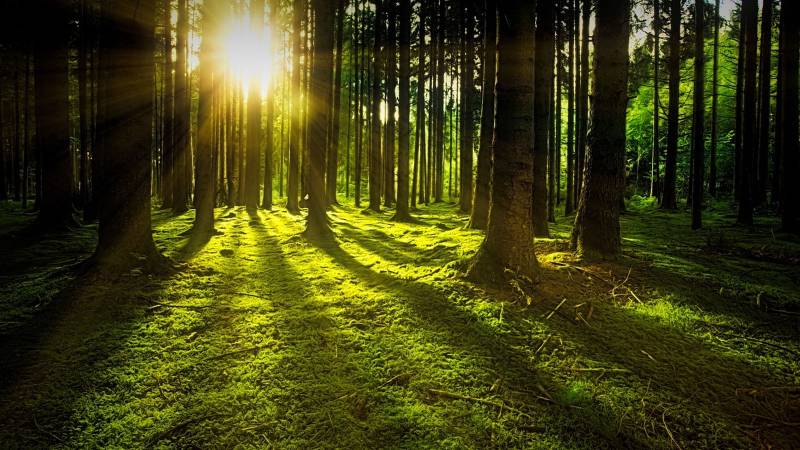
Faith has long been a driving force in people's lives, providing them with a sense of purpose, hope, and moral guidance. In Pakistan, a country rich in cultural diversity and deeply rooted in various faith traditions, religion plays a significant role in shaping individual beliefs and collective actions. At the same time, Pakistan faces pressing challenges related to climate change that threaten the well-being of its people and the environment.
Pakistan is no stranger to the impacts of climate change. Increasing temperatures, erratic weather patterns, melting glaciers, and rising sea levels are posing significant threats to the country's agriculture, water resources, and overall ecosystem. The vulnerability of marginalized communities, such as those living in rural areas and coastal regions, is exacerbated by the changing climate, leading to food insecurity, displacement, and loss of livelihoods.
Pakistan is home to a diverse population, with the majority of its people adhering to Islam, while other faiths such as Christianity, Hinduism, and Sikhism are also practiced. Many religious traditions, including Islam, emphasize the importance of stewardship of the earth and responsible management of natural resources. Verses of the Holy Quran and Hadiths (sayings and actions of the Prophet Muhammad peace be upon him) provide guidance on environmental protection, urging Muslims to act as responsible custodians of the planet.
Christianity and environmental stewardship are interconnected in various ways, and the relationship between the two has evolved over time. While there is no single Christian perspective on environmental issues, several key themes and principles within Christianity support the idea of responsible care for the environment.
In the Bible, Genesis 2:15 states, "The Lord God took the man and put him in the Garden of Eden to work it and take care of it." This verse is often cited as evidence of God's intention for humans to be stewards of the earth, responsible for tending to and safeguarding the environment.
In 2015, Pope Francis released an encyclical called "Laudato Si'," which addresses environmental issues from a Christian perspective. It calls for greater environmental awareness, sustainable development, and a commitment to caring for the Earth as our common home.
Christianity teaches the importance of loving one's neighbor, which can be extended to include not only fellow humans but also the broader community of life on Earth. Taking care of the environment is seen as an act of love and concern for future generations and all living creatures.
Islamic teachings promote environmental consciousness and ethical behavior towards nature. Concepts such as "amanah" (trust) and "khalifah" (caretaker) underscore the responsibility of humans to protect the Earth and its resources. Muslims are encouraged to avoid wastefulness, conserve water, and show compassion towards animals. These principles align with the goals of climate justice, emphasizing equitable and sustainable solutions for all.
Christianity teaches several principles and teachings related to environmental responsibility, emphasizing the moral and ethical duty of humans to care for the natural world. Many Christians believe that God created the earth and entrusted humans with the responsibility of caring for it. This concept of stewardship involves the responsible management and preservation of the environment as a reflection of gratitude and obedience to God.
Numerous Christian organizations and initiatives work to promote environmental responsibility within the Christian community. They often combine faith-based values with environmental advocacy and practical action. Some theologians develop eco-theological perspectives that integrate Christian beliefs with ecological concerns. These perspectives seek to deepen our understanding of the relationship between faith and the environment.
Recognizing the urgency of the climate crisis, faith communities in Pakistan are increasingly coming together to address environmental issues collectively. Interfaith dialogues and collaborations are fostering a sense of shared responsibility towards climate justice. Religious leaders are using their influence to raise awareness about climate change and advocate for sustainable practices within their communities.
At the grassroots level, faith-based organizations and local communities are initiating projects to combat climate change. Tree-planting campaigns, waste reduction initiatives, and clean energy projects are becoming more common. These efforts not only mitigate environmental degradation but also promote a sense of unity and shared purpose among diverse faith groups.
The Pakistani government has also recognized the importance of climate action and has implemented policies to address environmental challenges. These policies, when combined with the efforts of faith-based organizations and communities, can lead to more effective climate adaptation and mitigation strategies.
In Pakistan, faith plays a crucial role in shaping individual values and community actions. The intersection of faith and climate justice presents an opportunity for collective mobilization and meaningful change. By drawing on the teachings of their respective faiths, Pakistan's diverse religious communities can contribute to a sustainable and just future for all. Together, they can inspire hope, foster unity, and drive the transformational change needed to combat the climate crisis.
In the face of a rapidly changing climate, faith in action can be a powerful force for good. As Pakistan works towards a more sustainable future, faith communities must continue to champion environmental stewardship and climate justice, demonstrating that spirituality and science can harmoniously coexist in the quest for a healthier planet.

